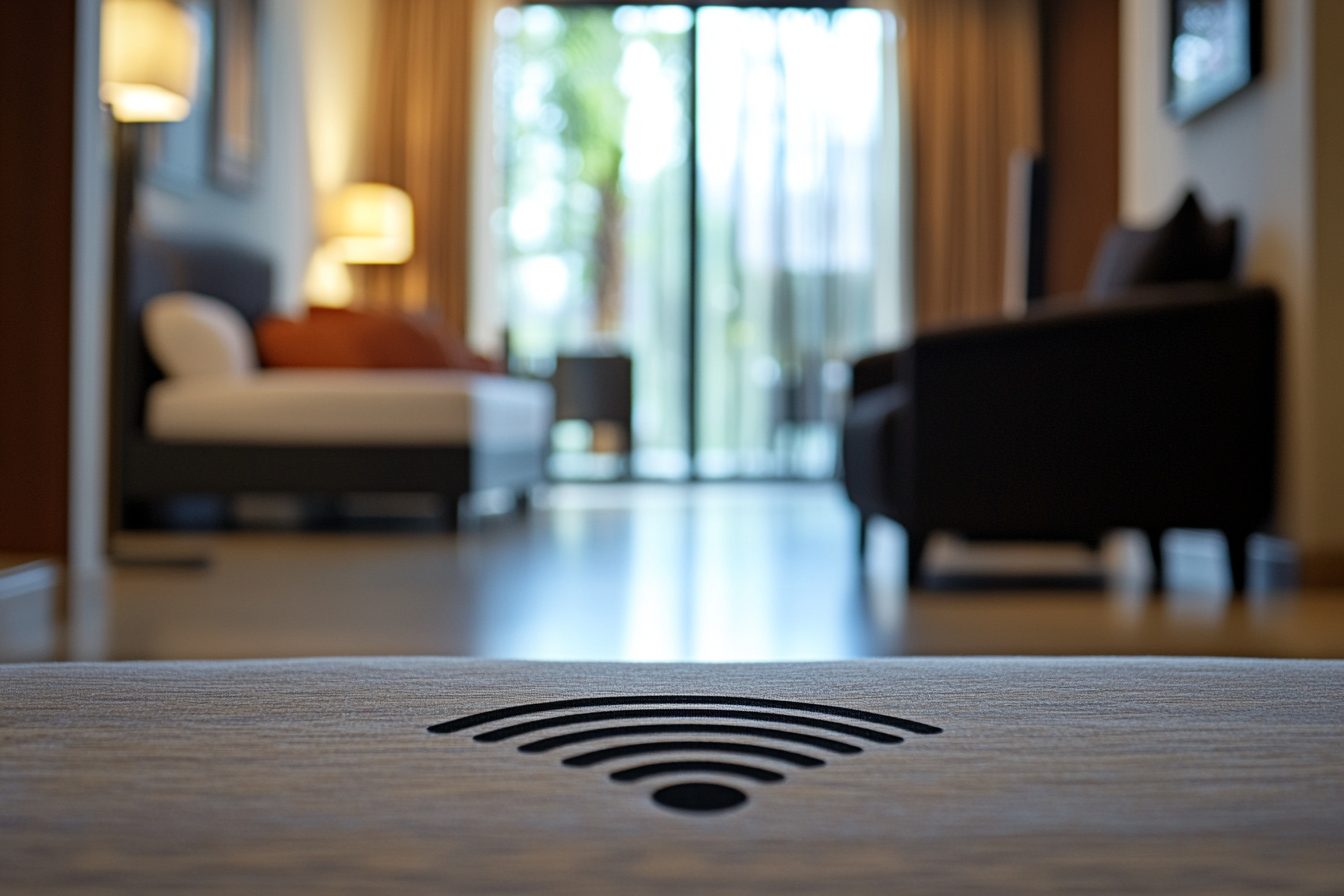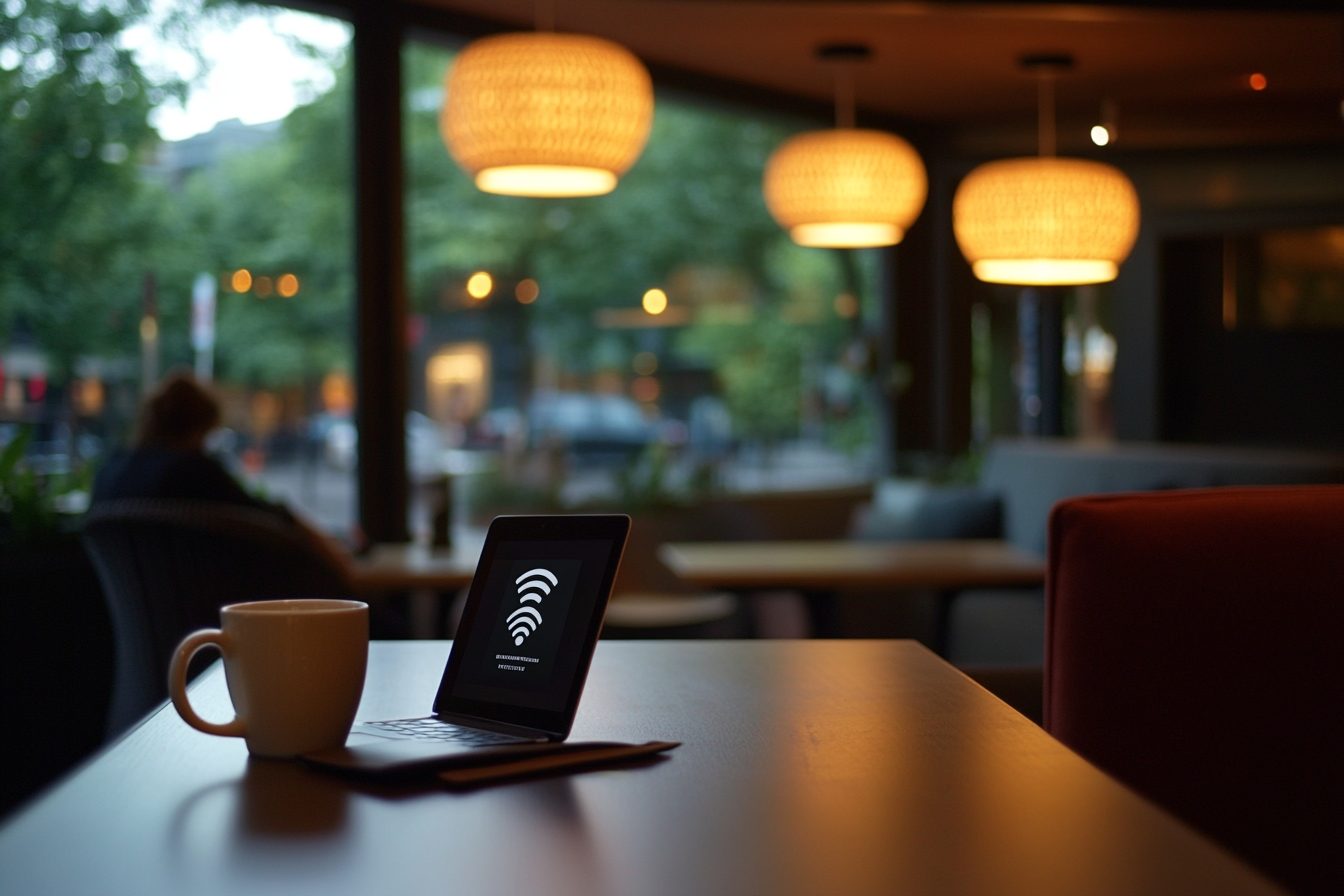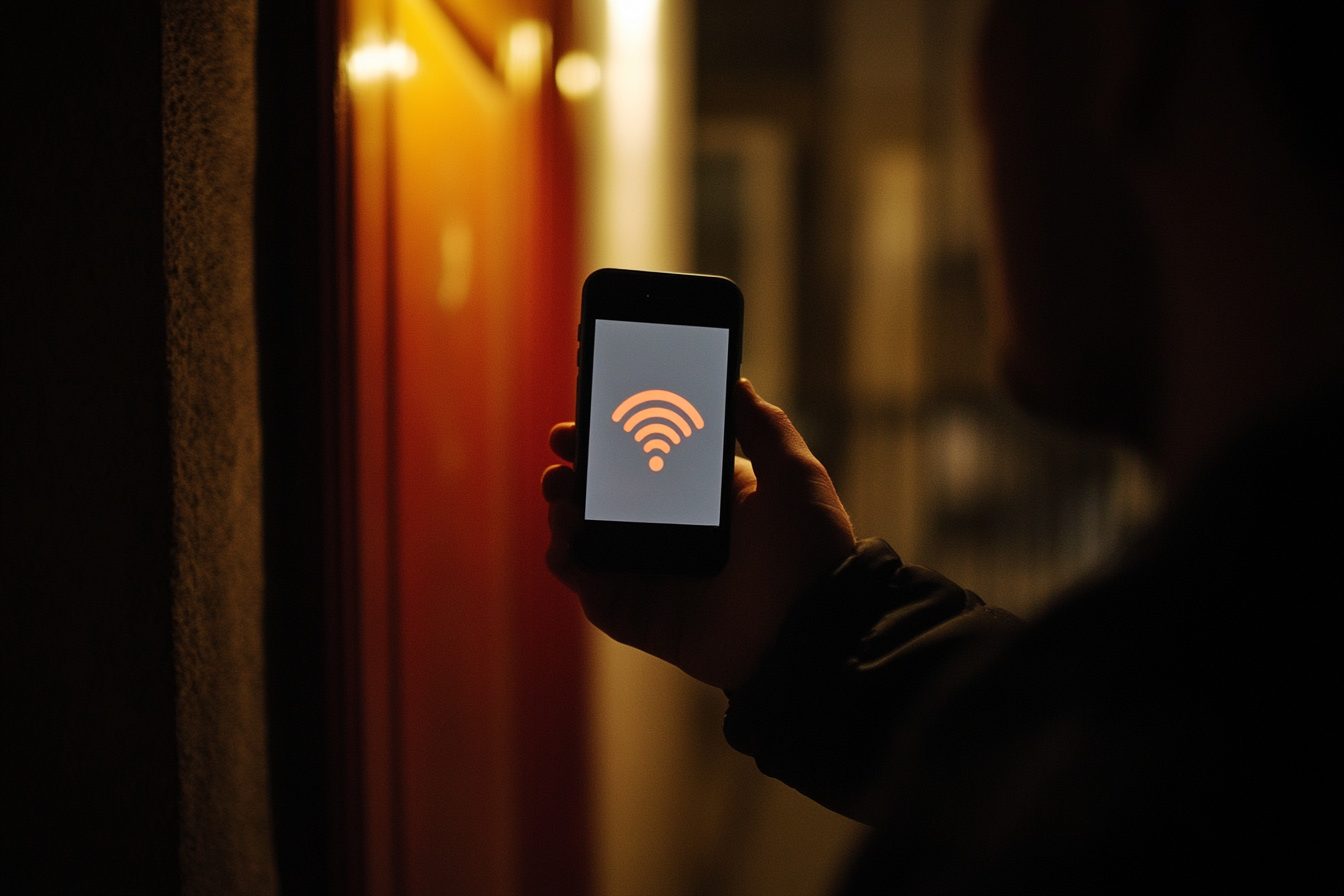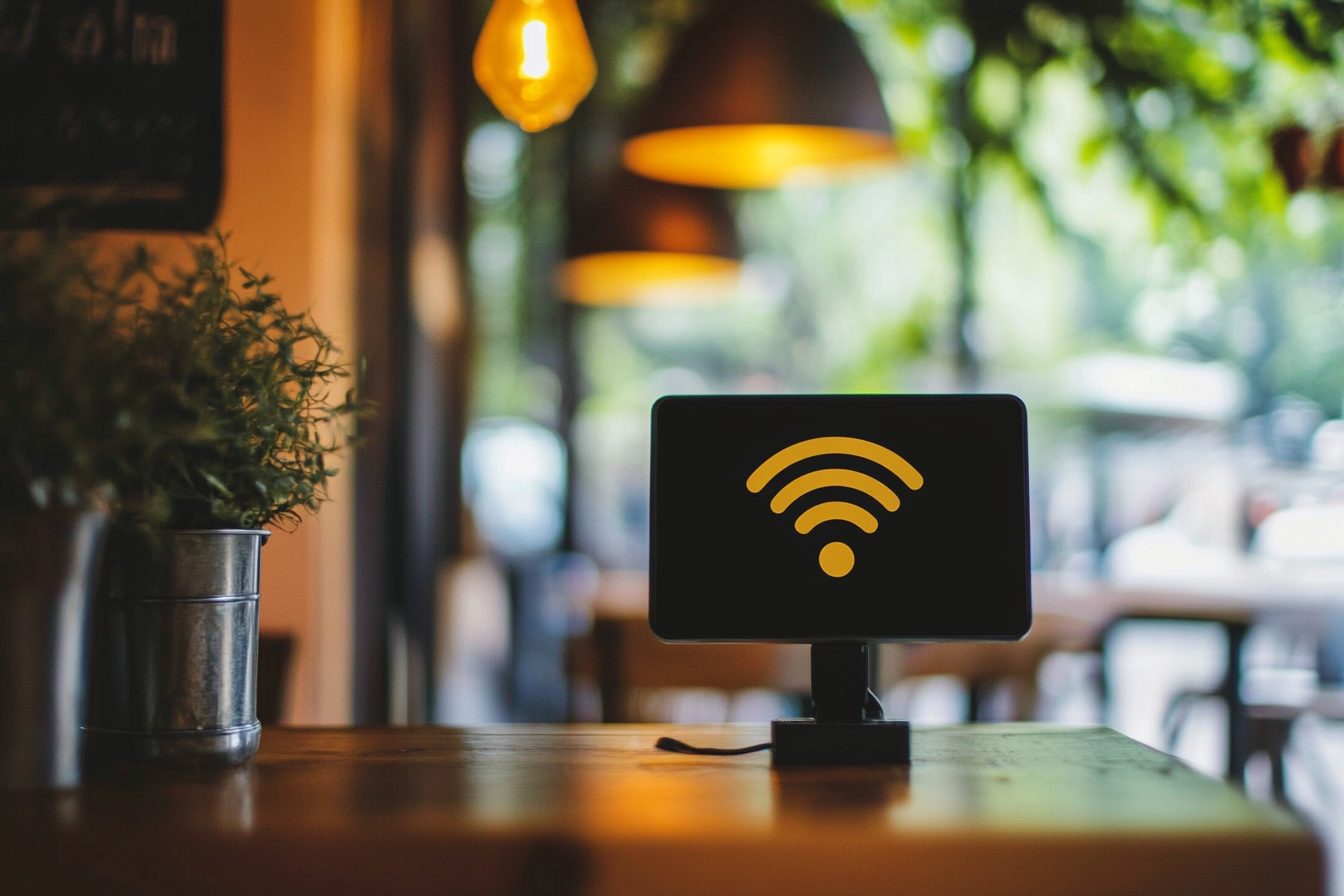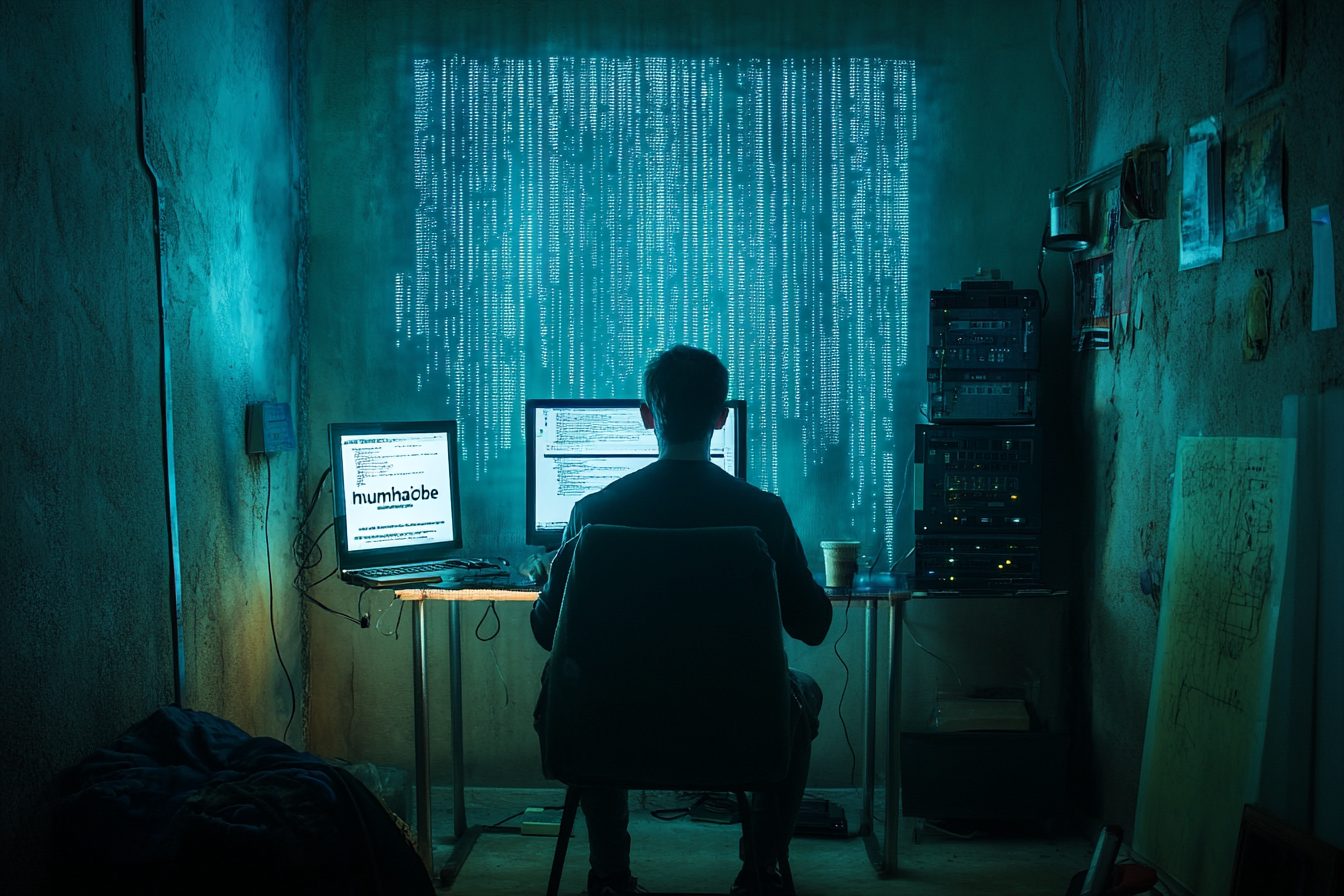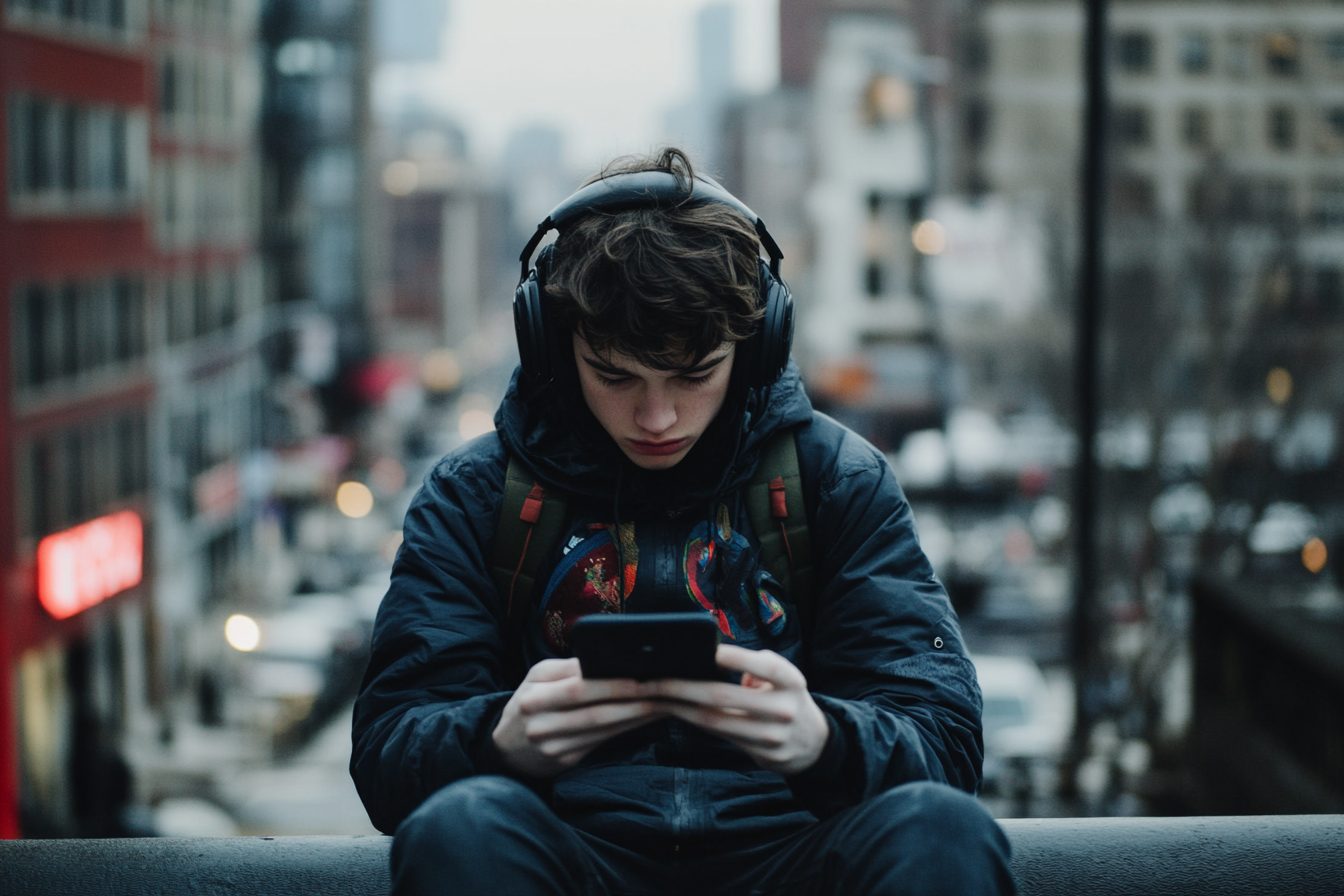I’m standing in someone’s living room and my coat is barely off and I begin to feel it: The twitch of my fingers, the muscle instinct that goes into action at the beggining of any setting. Without even accepting the offered drink, I get the urge to ask: “What’s your Wi-Fi password?”.
The passwords spill out of my mouth autonomously, words one might use It can quite literally be interpreted as: Testing out phrases a visitor would utter when intending to, “thank you for hosting, glad to meet you,” but a hint of hints base intimacy suggests they are much more Sphere of invitation is broad, access to ones Wi-Fi leaves a lot to be desired and whilst it might have sounded outright ridiculous twenty years ago, today, it stands to be one of the main utterances one speaks during the rituals of hospitality.
A dullard of a sigh escapes as she retrieves a small plastic sheet with the information from behind the photo frame, a gadget which tells us exactly what it’s purpose is and that is to grant visitor access to the wi-fi password of the household. “Not_Your_WiFi”. “What’s the password” I uttered anticipating the usual answer: “Actually It Is Your Wifi123”. She responds lacking all hint of zest showing this is a repeat interaction for her. As is always the case, I cringe in anticipation of the scenarios that come with the anxiety of checking whether I froze the wi-fi access passcode or not.
To this day, the cable skeleton, so to speak, in Ida’s bedroom still mystifies me. She had that put in because of a poorly implemented preliminary wifi installation in her flat, but the cables quickly became disconnected from any semblance of logic. Blended computer systems made up much of the clutter, everything arranged in a chaotic split level surround sound.
Almost all available surfaces seemed littered with scraps of old monitors. Only later did I realize I shouldn’t be surprised since the diagram depicting the supposedly perfectly assembled parts and wiring of a system was viciously concealed under a crumpled bedsheet masking her pillow. I wonder what it must be like for her guests from Rhode Island.
The photograph is amazing. From time to time, something within me feels the need to be attuned to the exact opposite view coming from the ground; They rise up against a capitalist machine and everything that comes with it. Cedar wood luxury cinema houses erupt into flames and burn in front of your eyes.
As it appears, there have been some interesting changes or social evolution connected with technology. An everyday occurrence celebrated all around the world, is an illustration of one of the developments, or rather changes, of human social practice. The Bread and Salt ceremony, which used to represent the age-old sacred relationship of a host and a guest has now been supplemented (or rather, in my view replaced) by the ritual of bandwidth sharing. Essentially, both practices deeply convey the identical sentiment: “When you enter within my domain, my resources are at your disposal.”
I find it pretty ironic keeping my roots in mind.
In user experience design, we spent untold hours perfecting seamless digital engagements, while this one interaction sits untouched and crude. Ever since, we all have moved on technologically, but most still need to recite strings of letters and numbers or hunt for some misplaced scrap containing network details. I was at my parents’ this last month, and endured my dad’s long-winded monologue on Wi-Fi password sharing.
Initially, he could not remember whether or not he had changed the password. Next, he could not find the paper where he had written it down. Ultimately, he had to dig out the original router box from the basement to check the default password which he, (the twist) changed but forgot what the current one was.
I paced back and forth in the entry with my bag, voicelessly, “pleading” to my disconnected phone connect to Wi-Fi. Ever so slowly, the modern work environment seems like an overwhelming challenge that is much more complex. During my last trip, I was a speaker at a conference. The organizers had a rather peculiar approach to registration which baffled me. Each attendee was printed with individual access codes on business cards.
By now, begging has morphed into a more sophisticated form with missing their access cards. These two grown professionals started huddling together, like children with a cigarette behind the school gym, sharing a hotspot. What bothers me is not the act of requesting and providing Wi-Fi access, but rather, the strange expectation that one would assume is placed for temporally mid-disconnected.
I find it quite interesting, for example, the interval between situating yourself in the new space and obtaining the password for the Wi-Fi. It is a limbo of sorts where you are alive, but have no digital existence. This gap, if that’s what one could call it, tends to elicit a discomforting sensation. This discomfort, I must say, is something I am not immune to as well.
A year ago, I booked an Airbnb ‘holiday home’ where the owner turned out to be so lovely. Unfortunately, sweet people can have bad Wifi passwords as was the case during check-in. So off I went with the password dialling into an internet-less AI dream that sadly could not come to reality. It was around eleven, and I was idiotic enough to find myself staying in a terribly unfamiliar city, so I thought about checking into a hotel instead.
Ultimately, I had to contact the host that did have the correct one. Dialling into that password-less void for 30 minutes quite literally makes no sense. Yet for other reasons, I was met with a bush of anxiety stronger than it needed to be. However, it is still a well-established assumption that the format of provided passwords can infer hints regarding the provider. Such as more personal their passwords become, the more they tend to complicate them by their inner password alphanumerical wizardry.
Like in Life: “ItHurtsWhenIP” and “YellPenisForPassword.” YellPenisForPassword. During work hours, the password could be something as boring as a word digit combo which would be forgotten in the blink of an eye. A coffee shop, however, would contrive passwords that are entertaining and easily remembered even though they may have to be repeated to the baristas over 50 times throughout the day. With some degree, I sense that the older generation, at least some, seem to guard Wi-Fi passwords like they are the nuclear codes and nuke launch codes meant to be hidden away even when no one else is around.
As I opened the door to his office, my father standing outside waiting hand first holding a network credential packet firmly sealed. “Keep this safe” was his insistence, preposterously telling me why I was guarding secrets in my mind that I wasn’t really guarding such secrets as a TikTok password I desperately wanted to claim. Unlike me, plenty of youngsters feel that sharing Wi-Fi should be treated as a bare minimum of civilized behavior; the notion of restriction of either access, or “god forbid” charging for it is utterly blasphemous.
Because they expect customers to place an order prior to fetching the Wi-Fi password, some cafes have attracted authentic anger from people in their twenties. The selling of their kidney is worth nothing. The exchange of the Wi-Fi password, in micro political relations that already include intricate difficulties, and with everyone staying over mutual friends’ places turn into hell. When it comes to planning to tap into their broadband it changes in relevance. Personally, I have developed a guiding principle: I do not care to request a password on facebook for visits to last less than 3 hours.
Anything longer than that will attract a gratitude password request which I’m entitled to for spousal rage phone broadband contribution. This demonstrates benevolence to the “need” host required to give. Also stunning is the other side of the exchange Wi-Fi provider psychology. On the other side, granting access seeks to offer a certain level of trust.
You’re not just handing out your Internet connection. You’re handing out a service that comes offered with personal accounts, finances, private chat sessions, and details for them to use.
The ironic thing is some people prefer throttling access to their digital homes or setting up ‘guest networks’. That step back is not half-baked. At my previous tech company, I knew security wonks who subscribed to connecting over a Public Wi-Fi through a VPN. In their eyes, free Wi-Fi was a million dolla enemy hotspott.”
In their case, modifying a user’s network could result in usersidership. They might not fully strut around the exoskeleton, but best believe they are within bounds nonetheless. The more our places of residence become technologically integrated, the more nuanced the terrain of sharing Wi-Fi access becomes. If I set a certain level of privileges to your network, am I also effectively controlling your Smart appliances, security cameras, and other technologies?
So what am I required to do to instruct your refrigerator to command it for more ice? Or adjust the temperature on the thermostat? The smart home opens up new paradigms for trust that can be shifted online and offline, which we are destined to explore.
The skeletal essence of this behavioral pattern is best described by the unquestionable thrust of asking me if I have Wi-Fi the moment one steps into the premises. Connectivity is no longer something we wish to be afforded – it is, in fact, demanded within seconds of some polite greeting, which say a lot about our ‘priorities’. While attending one of my friend’s dinner parties, I find myself glancing down at my phone within the first few minutes.
The act of glancing at the phone, mind you, is not to receive or initiate a phone call, nor is it to check if any important messages have come. The sole reason is to confirm that my digital identity is active. That particular device is so closely woven into the very fabric of my life that I lead, hence, being not connected is very unsettling. Is indeed an irony that I have undergone.
As someone that used to design interfaces where users’ focus was glued, the irony now is that I cannot attach myself to a social event without a digital one. These social gatherings of my ‘controlled’ design have shape-shifted me in ways that I don’t recognize myself anymore. I am forced to implement social interaction the same way I, in the past, animated people to engage with interfaces.
Within the existing paradigm of advancing digital hospitality, I have attempted some form of defiance. To illustrate, when I am visiting a friend’s house, I try to actively place my phone in my pocket, attempting to be present in the moment. While this may be a small gesture, it demonstrates to friends and family, noticing them over the screen is meaningful.
Consider the next time you find yourself saying “What is the Wi-Fi password?” immediately after entering a space. Thoughtfully, it shows how much we have become overly dependent on technology. Passcodes may grant you access to the global network, yet the strongest connections are more powerful interactions taking place in the room without a need for a passcode.
